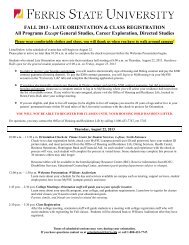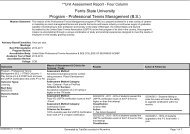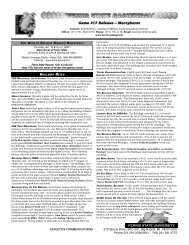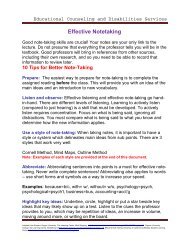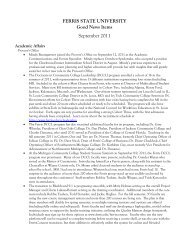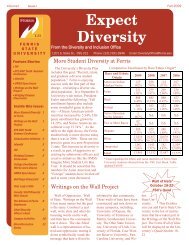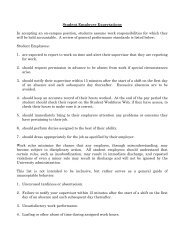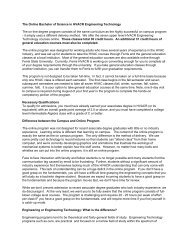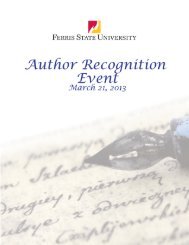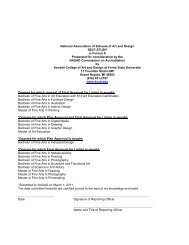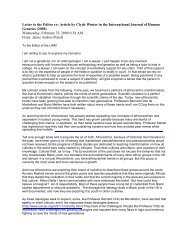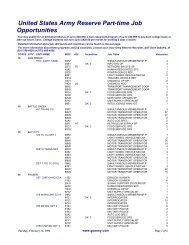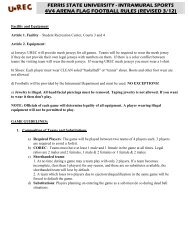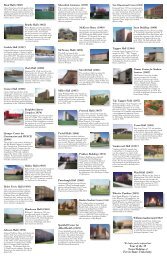Daniel Gasman - Ferris State University
Daniel Gasman - Ferris State University
Daniel Gasman - Ferris State University
You also want an ePaper? Increase the reach of your titles
YUMPU automatically turns print PDFs into web optimized ePapers that Google loves.
totally committed to a philosophy of immanence. In short, Richards’ analysis bears no relation to the<br />
Monism of Haeckel, nor does seem to fully understand the thought of Unamuno. 16<br />
Furthermore, one should bear in mind that a tragic sense of life implies some aspect of non-<br />
fulfillment; that, for example, the attainment of absolute knowledge is forever impossible and therefore<br />
human beings can never realize certainty in life, especially over questions of morality and the tragedy of<br />
human mortality. But Monism is the opposite of a tragic sense of life, because Monism implies total<br />
fulfillment based on the absolute reconciliation of opposites. Haeckel therefore would have rejected<br />
Unamuno’s concerns. In Haeckel’s 1899 magnum opus, The Riddle of the Universe, the theme clearly<br />
advanced was that knowledge was not limited. On the contrary, for Haeckel, all the riddles of the universe<br />
had been or were on their way to being solved. Nothing lay beyond the ability of science to comprehend<br />
the complete structure of the cosmos. Thus, the aspect of tragedy that Richards assumes in Haeckel is<br />
simply not there.<br />
Haeckel and Darwin<br />
A critical theme in Richards’ book emphasizes that the distinctions that are conventionally drawn<br />
between the science and biology of Darwin and Haeckel are misplaced and that the two scientists are<br />
really interchangeable intellectual figures. Richards believes that when correctly analyzed, Darwin is<br />
actually a Haeckelian and that his biology draws upon the same sources and closely resembles the science<br />
of Haeckel. However, even if one were to admit that there were some common romantic sources in the<br />
16 Richards incorrectly transforms Unamuno into a pantheist in order to show his affinity with Haeckel: ‘Unamuno<br />
argued that the desire for immortality, the longing to unite with eternal, divine nature….’ Richards, Tragic Sense of<br />
Life, 453. But Richards’ explanation is absolutely untenable and demonstrates how the primary theory of his book<br />
is built on a foundation of sand. Immortality for Unamuno was conceived in a Catholic sense, meaning a hoped for<br />
immortality of the concrete, physical person. As Unamuno wrote in opposition to Monism: ‘No, I do not long to be<br />
submerged in the great All, in infinite and eternal Matter and Energy, or in God. I long to possess God, not to be<br />
possessed by Him, to become myself God without ceasing to be the I who now speaks to you.’ Unamuno, Tragic<br />
Sense of Life, 52-53. On Unamuno’s interest in but ultimate rejection of pantheism, see Armand F. Baker, ‘The God<br />
of Miguel de Unamuno,’ Hispania, 74(3) December 1991, 824-833.<br />
9



